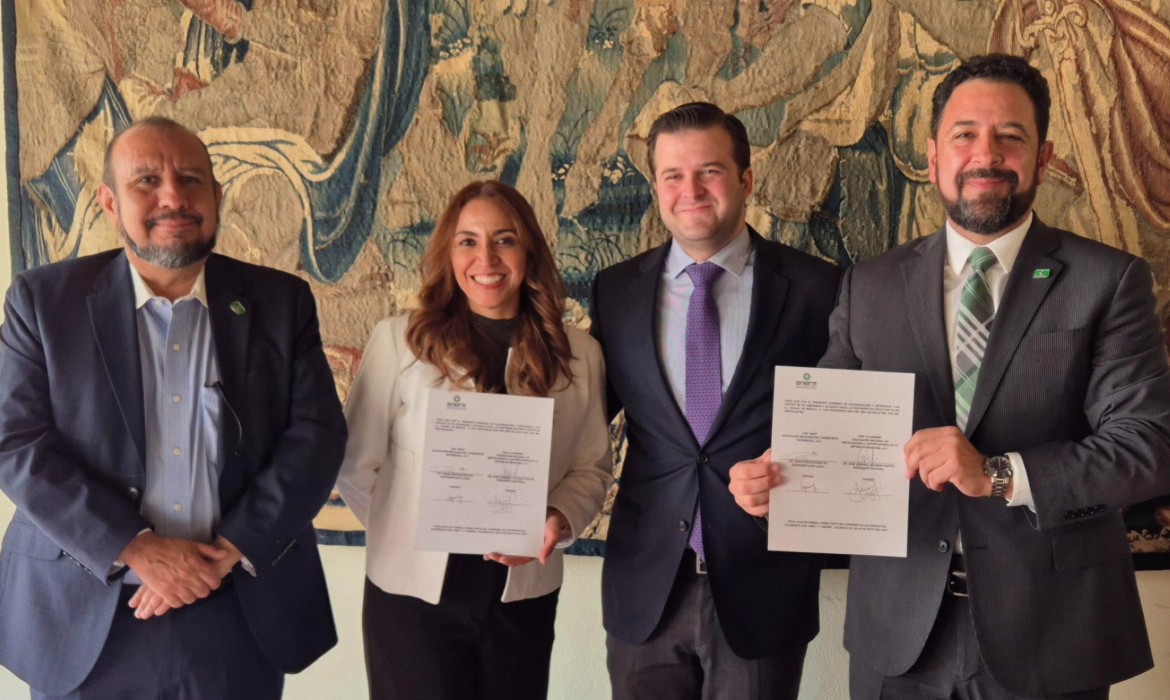
The National Association of Importers and Exporters of Mexico (ANIERM) announced that for the next review of the United States-Mexico-Canada Agreement (USMCA), they will request the creation of a regional industrial policy, necessary in response to the impact of relocation.
José Gerardo Tajonar Castro, president of the organization, emphasized that this policy should include resources for developing the export capacity of small and medium-sized enterprises (SMEs), similar to efforts seen in the United States regarding chip production.
“We believe the solution lies in regional cooperation and the implementation of industrial policies that support businesses, offering us opportunities to enhance efficiency not only in products but also in services. Mexico supplies 13.6% of U.S. merchandise purchases but only 5% of its imports; the relocation of investments presents an opportunity to narrow this gap,” he stated during a meeting organized by the Mexican Association of Intermodal Transport (AMTI).
He explained that their proposed strategy addresses not only products but also services to effectively respond to nearshoring, formerly known as export maquiladoras.
Furthermore, ANIERM anticipates benefits from established port-to-port routes between Mexico and the U.S., international maritime highways, short-sea shipping routes, cabotage, among others.
“We’ve observed that the Progreso to Panama City route in Florida has been highly successful, providing us with entry into the U.S. from an alternative route. This benefits not just business but also various distributors, offering us the option of intermodal transport and access to different routes along the U.S. East Coast and short-sea shipping routes to Central America,” he noted.
Tajonar Castro stressed the importance of collaborating closely with Claudia Sheinbaum’s administration in the upcoming term, asserting, “It’s crucial for our foreign trade that her proposals are considered. Historically, we’ve seen a government that acknowledges our proposals but fails to implement them.”
“We need to work closely with the cabinet and new officials. We face ongoing challenges; every week, we find ourselves needing to write to the Ministry of Economy. However, our contribution includes initiatives like training military personnel near operations in tariff classification or customs operations, through scholarships. Our goal is not just to complain but to offer solutions, such as teaching military personnel to identify and mitigate risks, in collaboration with ANAM. Unfortunately, the cost of training and operational delays are making commercial facilitation difficult, which is our reality,” he explained.
During the event, ANIERM and AMTI signed an agreement to promote the benefits of intermodal transport, highlighting reduced costs, eco-friendly transportation, enhanced security, and capacity.
“We must work diligently to educate ANIERM’s importers and exporters about the advantages of intermodal transport. Our first step is to educate their partners so they understand what intermodal transport entails and how it can economically benefit their cargo movements. We share the common goal of improving import and export operations,” said Diego Anchustegui, president of AMTI.

Comment and follow us on X: @evandeltoro / @GrupoT21















